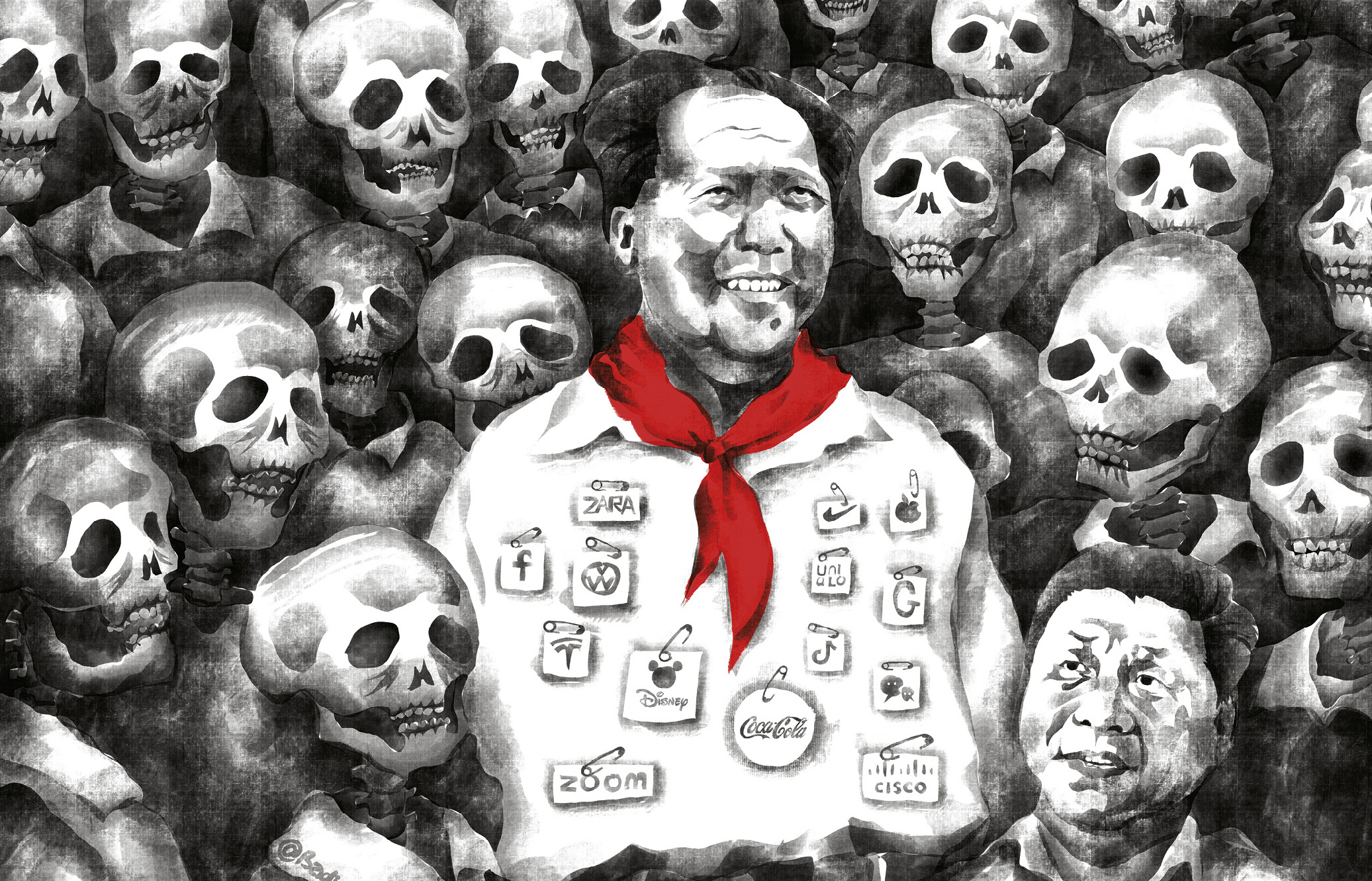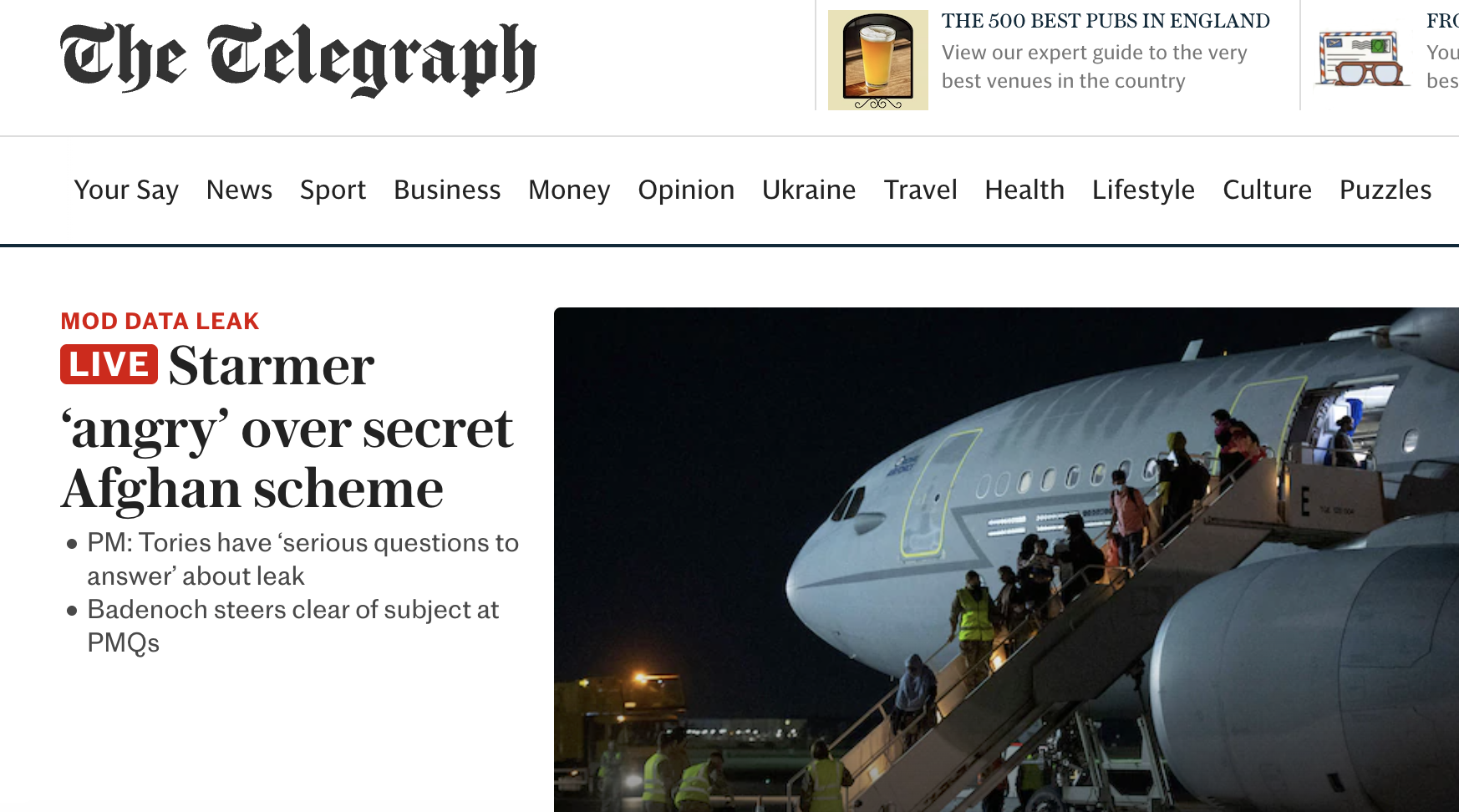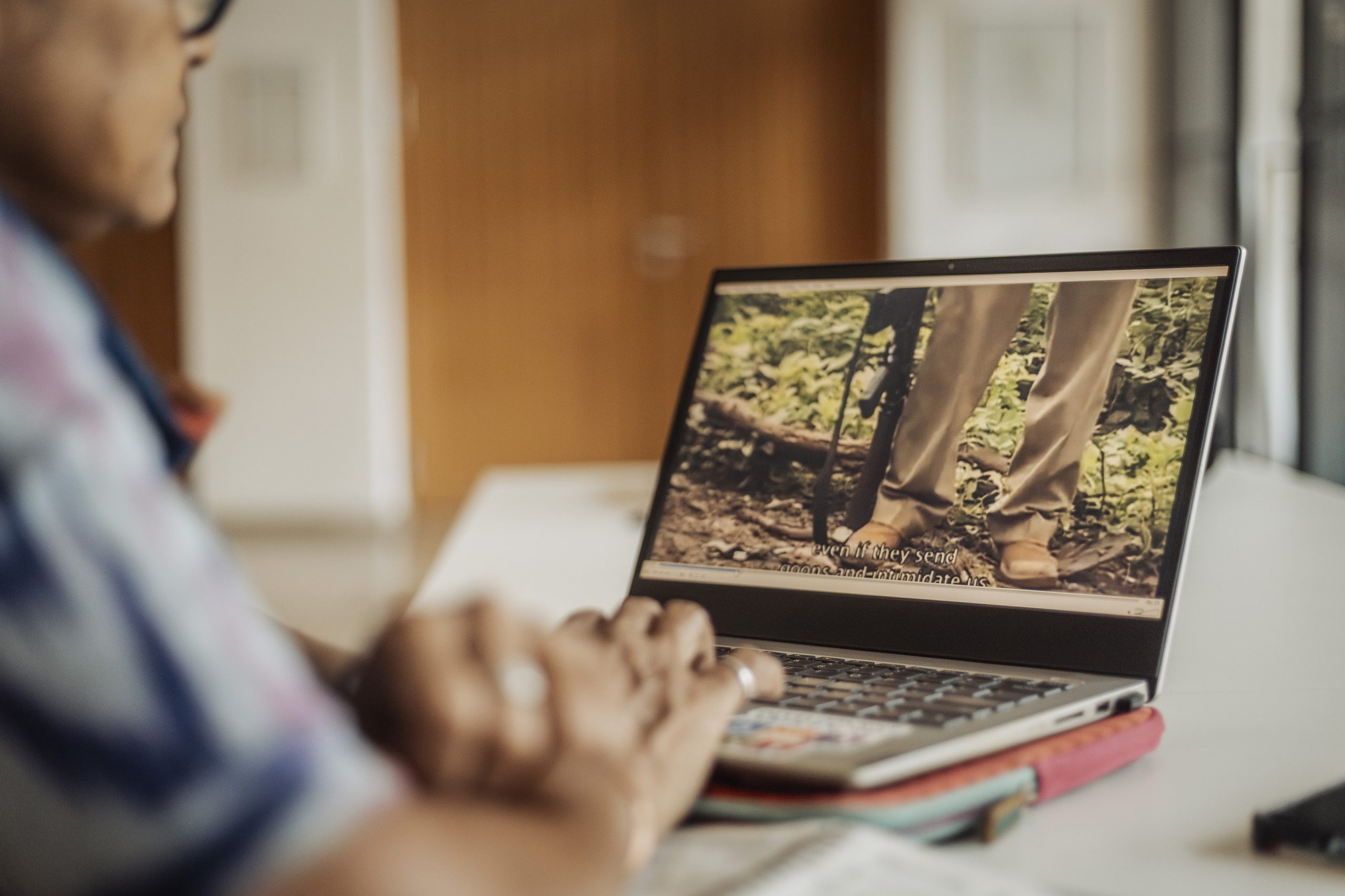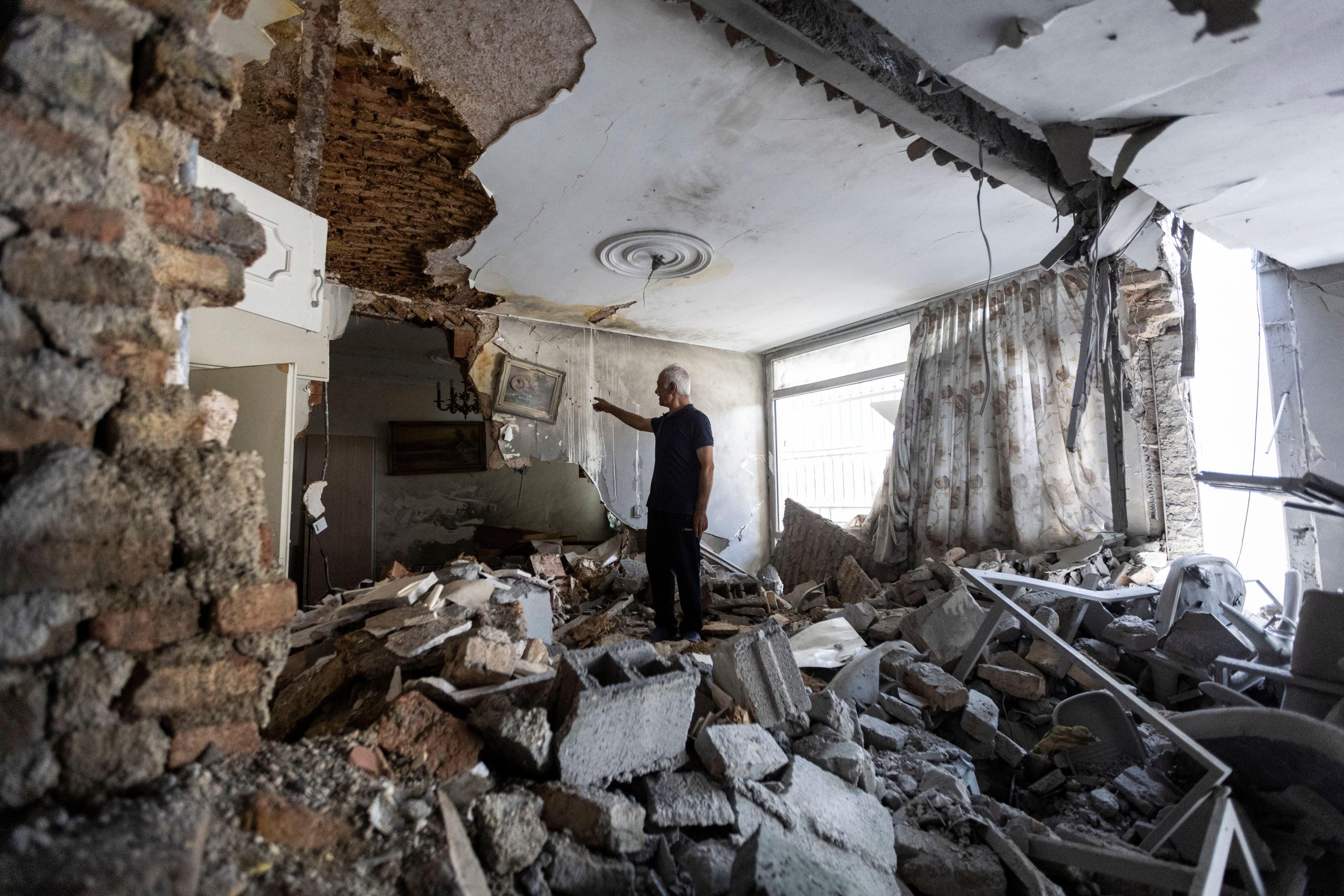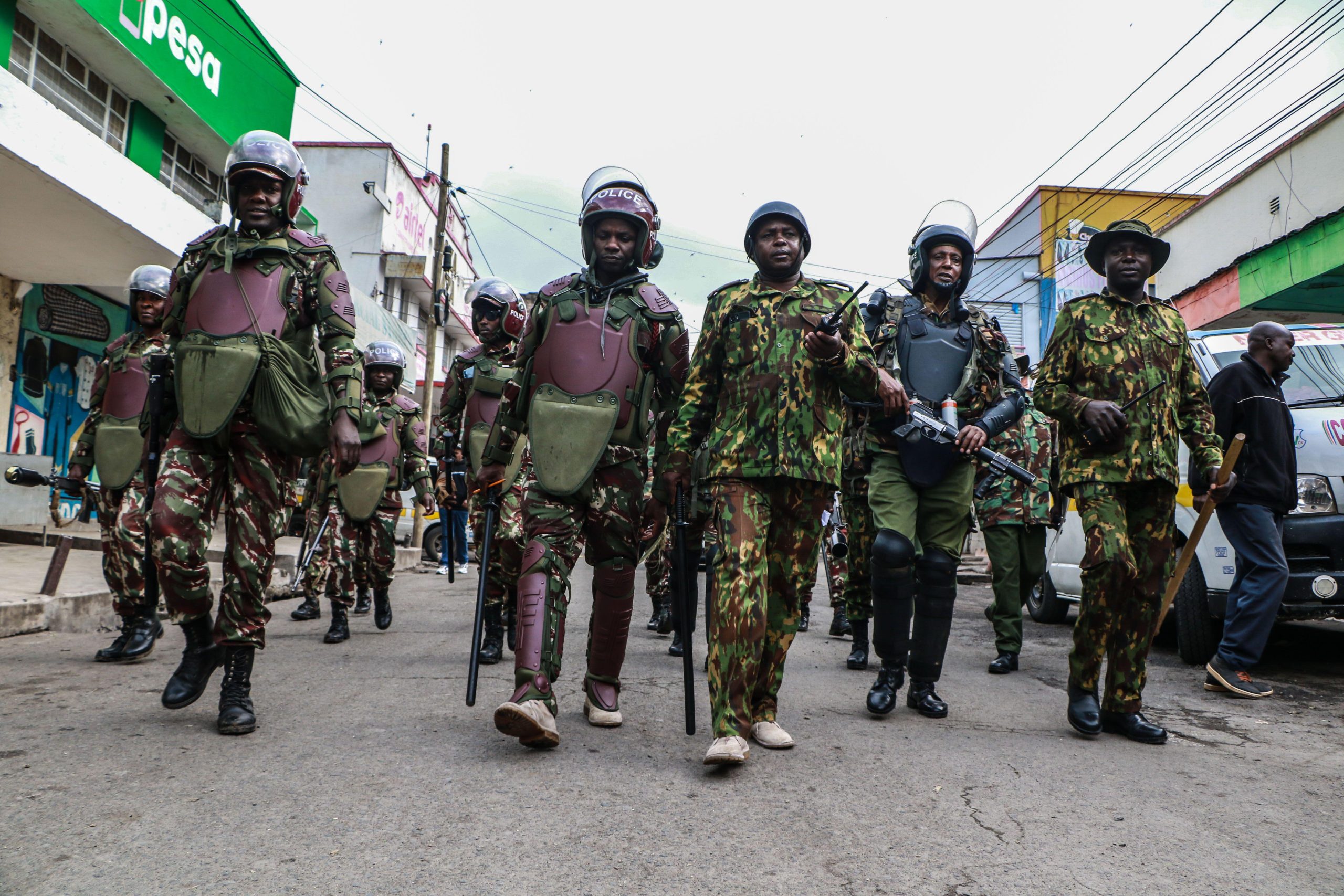[vc_row][vc_column][vc_single_image image=”116639″ img_size=”full” add_caption=”yes”][vc_column_text]
Sometimes, from the most trivial event or seemingly insignificant interaction, you can gauge the health of a society and decide: “This is a place I’d like to live, a place conducive to happiness.”
A few years ago, while in Taiwan for a literary festival, I went to a night market to look for tangyuan – the sticky rice dumplings that are traditionally eaten on the final day of Chinese New Year. As their name is a homophone for the word “union”’, Chinese families eat them on this day to ensure that during the coming year they will remain united. As I’d recently been cast into exile from mainland China, I thought the dumplings could assuage my longing for home.
After a long search, I found a small dumpling stall and asked the elderly owner if she had any. She told me she’d sold out, but that if I bought a bag of frozen ones from the supermarket across the road she would boil them up for me on her stove. I did as she suggested and she served them to me in a big bowl, handed me a spoon and invited me to sit at one of her rickety tables. She fervently refused my offer of payment. As I sat there savouring the hot, translucent dumplings stuffed with sweet black sesame paste, I felt closer to home than I had done in years.
It was not the dumplings themselves or the memories they evoked that made me feel close to home. It was the simple act of kindness from this old woman who didn’t know me. Her kindness struck me as peculiarly Chinese. It was imbued with what we call renqing: a sentiment, a human feeling that inspires one person to perform a favour for another simply because they can, with no thought of recompense.
Traditional Chinese society was glued together by such sentiments. Their roots lie in Confucian values of benevolence, righteousness and propriety. At the heart of them all is the idea that to lead a good life you must treat others with compassion, that each human being has the potential to be good and is worthy of dignity and respect. Almost 500 years before the birth of Christ, Confucius devised his own Golden Rule: “When you leave your front gate, treat each stranger as though receiving an honoured guest … Do not do to others what you do not wish for yourself.”
[/vc_column_text][/vc_column][/vc_row][vc_row][vc_column width=”1/4″][vc_icon icon_fontawesome=”fas fa-quote-left” color=”custom” custom_color=”#dd0d0d”][/vc_column][vc_column width=”3/4″][vc_custom_heading text=”The horror of the current situation in Xinjiang is in a category of its own”][/vc_column][/vc_row][vc_row][vc_column][vc_column_text]
But in China, these ancient values have been bludgeoned by 70 years of Chinese Communist Party rule. Since the days of Mao, the CCP has clung to power through violence, propaganda and lies, viewing its subjects as senseless cogs that it can blind with promises of a future Utopia while confining them to a present hell. How easy it is for humans to be stripped of reason by a tyrant’s deceit and malice. At 13, having survived the Great Famine caused by Mao’s reckless Great Leap Forward campaign, when my siblings and I had had to eat toothpaste and tree bark to stave off starvation, I nevertheless longed to join Mao’s party. When he launched his Great Proletarian Cultural Revolution, I was incensed that the class background of my grandfather, who had perished in a Communist jail, disqualified me from joining Mao’s Red Guards. The deepest hope of my generation was that after purging China of bourgeois elements, we could travel to Britain and the USA to liberate their populations from the yoke of capitalist oppression and welcome them into the CCP’s revolutionary fold.
Slowly, as I witnessed horrific scenes of mob violence, I began to see this march to Utopia for what it was: a dehumanising nightmare that divided people into class categories, pitting one against the other in constant struggle, “rightist” against “leftist”, neighbour against neighbour. Time-honoured values of family loyalty and respect for elders were shattered as sons were encouraged to betray their fathers and daughters their mothers. No thought other than Mao Zedong Thought was allowed. Anyone who, however inadvertently, strayed from party orthodoxy was branded a class enemy and destroyed.
At least 45 million people are estimated to have died in Mao’s Great Famine. Millions more were killed or persecuted in his Cultural Revolution. Mao’s ideas and values caused catastrophic suffering and death, and corroded the hearts of the nation.
In the 40 years since Mao’s death, the Chinese have been forbidden to reflect on their traumatic past or contest any current injustices. Like a cunning and obdurate virus, the CCP has mutated. While other communist regimes around the world have fallen, it lives on, still suppressing free thought, still whitewashing history, but embracing, with increasing vigour, the capitalism Mao strove to eliminate. The party has loosened tethers it itself placed on the economy, and the Chinese have got rich. Although it continues to spout Marxist-Leninist jargon, its overarching obsession is power, and how to cling on to it. It still views the Chinese people as senseless cogs it can manipulate or flatten as it pleases. It still tells them that the material life is all that matters and that happiness is the China Dream of wealth and national glory conceived by the party’s current leader, Xi Jinping. Freedom, democracy, human rights, the desire to become master of one’s own fate: all of these are unnecessary, absurd, dangerous, it says. The Chinese people have no need for them!
In George Orwell’s Nineteen Eighty-Four, Winston is told that if he wants a picture of the future, he must “imagine a boot stamping on a human face – forever”.
This totalitarian nightmare is not some fictional future, though. Published in 1949, the year Mao rose to power, the novel prophetically describes China’s fate under CCP rule.
For moments, sometimes for days or weeks during the dark decades of China’s recent history, a hand has pushed the boot aside and the human face has looked up. It looked up with hope and joy during the Tiananmen Square protests of 1989, when millions gathered across the nation to call for freedom and democracy. In 2008, it looked up when 303 Chinese dissidents signed Charter 08 that argued for an end to one-party rule and asserted that freedom and human rights are universal values that should be shared by all humankind. In Hong Kong, the human face has looked up defiantly as the territory bravely struggles to retain what few freedoms it has left. And last year, back on the mainland, the face looked up for a few short hours when, after Dr Li Wenliang was reprimanded for raising the alarm about Covid-19 and then died of it, Chinese social media became flooded with the courageous hashtag #IWantFreedomOfSpeech.
Every time citizen journalists like Fang Bin upload independent reports on social media, civil rights activists like Xu Zhiyong call openly for political reform, dissidents like Gao Yu shine a light on the secret workings of the oppressive state, the human face looks up and proclaims: “without freedom of speech we are all enslaved”.
But each time, the CCP boot stamps back down again. In 1989, it sent the tanks to Tiananmen Square to crush the unarmed protesters. In 2009, it imprisoned the leading dissident Liu Xiaobo who co-authored Charter 08, banned him from collecting the Nobel Peace Prize he was awarded the following year, and in 2017, humiliated him even in death by stage-managing his funeral, forcing his family to drop his ashes unceremoniously into the sea. Fang Bin has been disappeared, Xu Zhiyong is in prison, Gao Yu and countless other dissidents like Ding Zilin, who courageously persists in dragging the Tiananmen massacre from state-imposed amnesia, are under intense surveillance. In Hong Kong, the party has violated the Sino-British Joint Declaration, beaten protesters and arrested every prominent critic. In Tibet, decades of CCP oppression have driven 156 Tibetans to set fire to themselves in anguish.
“But look how much richer the Chinese have become!” CCP apologists cry out. “Western democracies like the USA and Britain are a sham, corrupt and incompetent – see how they failed to contain the Covid-19 epidemic! Does this not prove the superiority of China’s authoritarian regime?”
They ignore that the CCP’s obsession with secrecy caused the initial outbreak’s catastrophic spread, and that democratic Taiwan far outperformed China, recording only 10 Covid deaths, without the government having to imprison whistleblowers or weld Covid patients into their homes.
It’s true that UK prime minister Boris Johnson and US president Donald Trump failed disastrously to contain the virus. (Is it a coincidence that both leaders share Xi’s disregard for the truth?)
But Trump could be voted out, Johnson can be vilified in the press, and no one loses their freedom of speech. This is the power of democracy – however embattled it may become, it guarantees, more than any other system yet invented, that every citizen can have their say and that political change is always constitutionally possible.
“The Chinese just aren’t suited to democracy, though – it’s not in their culture,” the apologists retort. But Taiwan destroys this argument – it proves that the Chinese can be both prosperous and free.
“It’s different on the mainland,” the apologists insist. “Look at the popular support for the party!” But the apologists fail to understand that when people have been governed by lies and fear, their gratitude to their leaders is little different from the affection some hostages develop for their captors.
The truth is, everyone in China is a hostage. Some may be wealthier than others, some more aware than others of the prison bars that surround them, but everyone is spiritually incarcerated by the CCP. They have all been denied the most fundamental human right: the right to form independent thought. Without freedom of thought, one loses respect for oneself and the ability to respect and feel compassion for others. China may be rich, but 70 years of CCP rule has plunged the country into an ever-deepening moral abyss.
It is impossible to make a hierarchy of misery, to judge the death and persecution of one person or of one people as worse than those suffered by others. But the horror of the current situation in Xinjiang seems to be in a category of its own. The images of Uighur convicts, handcuffed and blindfolded, heads shaven and bowed, being herded onto trains; of hastily-erected internment camps with watchtowers, barbed wire fencing and high perimeter walls; of inmates forced to smile and sing to foreign inspection teams, despair welling in their eyes; the accounts of torture, rape, forced sterilisations and indoctrination from the few Uighurs who have managed to escape. These images and accounts recall the worst atrocities of the 20th century. In the name of “anti-terrorism”, a people and a culture are being annihilated. Determined to eradicate any perceived threat to its rule, the CCP is stamping its boot down on an entire ethnic group, aiming to extinguish the Uighurs “root and branch”.
[/vc_column_text][/vc_column][/vc_row][vc_row][vc_column width=”1/4″][vc_icon icon_fontawesome=”fas fa-quote-left” color=”custom” custom_color=”#dd0d0d”][/vc_column][vc_column width=”3/4″][vc_custom_heading text=”As I witnessed horrific scenes of mob violence, I began to see this march to Utopia for what it was: a dehumanising nightmare”][/vc_column][/vc_row][vc_row][vc_column][vc_column_text]
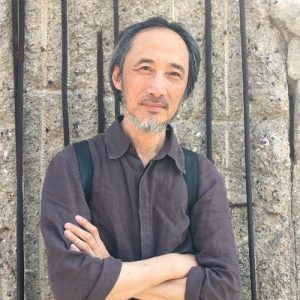
Ma Jian
When reports first emerged of the Xinjiang camps, I found the images too dreadful to bear. Wanting to convey my grief and solidarity, I sought out a Xinjiang restaurant in London, which has now closed. After I paid for my meal, I asked the owner to join me outside, so that we could speak without being overheard. I asked him about the camps, and whether he still had family in the province. It turned out he was not a Uighur but a Han Chinese who had moved to Xinjiang in the 1990s. “Those Uighurs – they deserve what’s happened to them!” he said with a smirk. “Good thing they’ve been locked up in the camps. My family say the streets are much quieter now.”
His words were abhorrent, but he was expressing views many Han Chinese on the mainland share. These Chinese mainlanders are not evil, of course. The corrupted moral view that some of them may have is the tragic product of an evil regime.
On the hundredth anniversary of its founding, the CCP will reassert that ‘Without the Communist Party, there is no New China!’ Xi wants his model of authoritarian capitalism to be applauded and replicated by the entire world. He wants the UN to move its headquarters to Beijing – the ultimate validation of his ideas and values.
For anyone who cherishes human rights and freedom of speech it is repugnant that, while hundreds of millions of victims of the CCP’s man-made disasters lie rotting in their graves, while Chinese dissidents continue to be jailed and disappeared, while Hong Kong turns from a place that once offered refuge to mainland dissidents into a place from which its own citizens flee, while Tibetans continue to set themselves on fire, and while a genocide is taking place right now in Xinjiang – it should be repugnant to everyone that in the face of such unending injustice, some Western commentators could suggest that the CCP is winning the battle of values and ideas in the world.
But more appalling still is that for the sake of some grubby trade deals with China, the political leaders of Western democracies are doing little more than offering asylum to Hong Kong citizens and expressing “concern” at China’s human rights abuses. As China’s economy grows and CCP values spread across the nation’s borders, freedom of speech, liberal values and renqing – that essential human capacity for kindness and compassion – will become increasingly endangered. Unless Western leaders defend, not with gunboats or empty rhetoric but with unwavering commitment, the enlightenment values of liberty, fraternity and reason that should form the foundation of every civilised country, then there will soon be very few places left in the world that are conducive to human happiness.
[/vc_column_text][/vc_column][/vc_row][vc_row][vc_column][vc_custom_heading text=”Subscribe”][vc_column_text]In print, online. In your mailbox, on your iPad.
Subscription options from £18 or just £1.49 in the App Store for a digital issue.
Every subscriber helps support Index on Censorship’s projects around the world.
![]() SUBSCRIBE NOW[/vc_column_text][/vc_column][/vc_row]
SUBSCRIBE NOW[/vc_column_text][/vc_column][/vc_row]

